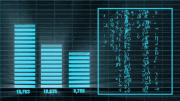
Research indicates that dementia, particularly at epidemic levels seen today, was rare in ancient Greece and Rome, suggesting it is a modern condition influenced by lifestyle and environmental factors. Ancient texts and comparisons with the Tsimane people, who have low dementia rates, highlight the significant role of contemporary environments in dementia prevalence. Credit: SciTechDaily.com
A recent analysis by USC reveals that medical documents dating back 2,500 years rarely mention severe memory loss, indicating that modern times’ widespread dementia stems from modern environments and lifestyles.
You might think age-related dementia has been with us all along, stretching back to the ancient world.
But a new analysis of classical Greek and Roman medical texts suggests that severe memory loss — occurring at epidemic levels today — was extremely rare 2,000 to 2,500 years ago, in the time of Aristotle, Galen, and Pliny the Elder.
The USC-led research, published in the Journal of Alzheimer’s Disease, bolsters the idea that Alzheimer’s disease and related dementias are diseases of modern environments and lifestyles, with sedentary behavior and exposure to air pollution largely to blame.
Observations from Ancient Greece and Rome
“The ancient Greeks had very, very few — but we found them — mentions of something that would be like mild cognitive impairment,” said first author Caleb Finch, a University Professor at the USC Leonard Davis School of Gerontology. “When we got to the Romans, and we uncovered at least four statements that suggest rare cases of advanced dementia — we can’t tell if it’s Alzheimer’s. So, there was a progression going from the ancient Greeks to the Romans.”
Ancient Greeks recognized that aging commonly brought memory issues we would recognize as mild cognitive impairment, or MCI, but nothing approaching a major loss of memory, speech, and reasoning as caused by Alzheimer’s and other types of dementia.
Finch and co-author Stanley Burstein, a historian at California State University, Los Angeles, pored over a major body of ancient medical writing by Hippocrates and his followers. The text catalogs ailments of the elderly such as deafness, dizziness, and digestive disorders — but makes no mention of memory loss.
Centuries later in ancient Rome, a few mentions crop up. Galen remarks that at the age of 80, some elderly begin to have difficulty learning new things. Pliny the Elder notes that the senator and famous orator Valerius Messalla Corvinus forgot his own name. Cicero prudently observed that “elderly silliness … is characteristic of irresponsible old men, but not of all old men.”
Environmental Factors and the Tsimane Study
Finch speculates that as Roman cities grew denser, pollution increased, driving up cases of cognitive decline. In addition, Roman aristocrats used lead cooking vessels, lead water pipes and even added lead acetate into their wine to sweeten it — unwittingly poisoning themselves with the powerful neurotoxin.
(A few ancient writers recognized the toxicity of lead-containing material, but little progress was made in dealing with the problem until well into the 20th century. Some scholars blame lead poisoning for the fall of the Roman Empire.)
For this paper, Finch did not just think about the Roman Empire or the Greeks. In the absence of demographic data for ancient Greece and Rome, Finch turned to a surprising model for ancient aging: today’s Tsimane Amerindians, an Indigenous people of the Bolivian Amazon.
The Tsimane — like the ancient Greeks and Romans — have a preindustrial lifestyle that is very physically active, and they have extremely low rates of dementia. An international team of cognitive researchers led by Margaret Gatz, a professor of psychology, gerontology and preventive medicine at the USC Leonard Davis School, found among older Tsimane people, only about 1% suffer from dementia. In contrast, 11% of people aged 65 and older living in the United States have dementia, according to the Alzheimer’s Association.
“The Tsimane data, which is quite deep, is very valuable,” Finch said. “This is the best-documented large population of older people that have minimal dementia, all of which indicates that the environment is a huge determinant on dementia risk. They give us a template for asking these questions.”
Reference: “Dementia in the Ancient Greco-Roman World Was Minimally Mentioned” by Caleb E. Finch and Stanley M. Burstein, 13 February 2024, Journal of Alzheimer’s Disease.
DOI: 10.3233/JAD-230993
The paper was supported by funds from the Cure Alzheimer’s Fund and the National Institutes of Health (P01 AG055367 and R01 AG05442).









Researchers are the ones that are definitively mad. They are lots of precedents of insanity and even senile dementia in the ancient sources. They just called it by other names, and in most of the cases the dark shadow of a god or goddess was used as explanation.
Might ‘data overload’ play a role? That is, we live lifestyles subjecting us to a barrage of information from TV and movies. We have a large number laws to comply with and have to track our banking accounts and investments. With a much larger population, we meet far more people than our ancestors. Lastly, every time a new invention comes out, we are challenged with learning how to use it (and memorize yet another password). That, in contrast to our ancestors who might be born and die in the same town, used the same simple technology their whole life, rarely traveled very far, and only had to count the coins in their purse. For such a person, their ‘crystalized’ memory would serve them adequately for everyday activities, and they rarely had to memorize the name of someone who wasn’t a relative or close friend that they had grown up with. Perhaps our tribal evolution isn’t up to the task of handling all the changes that make demands on our memory in a technological world.